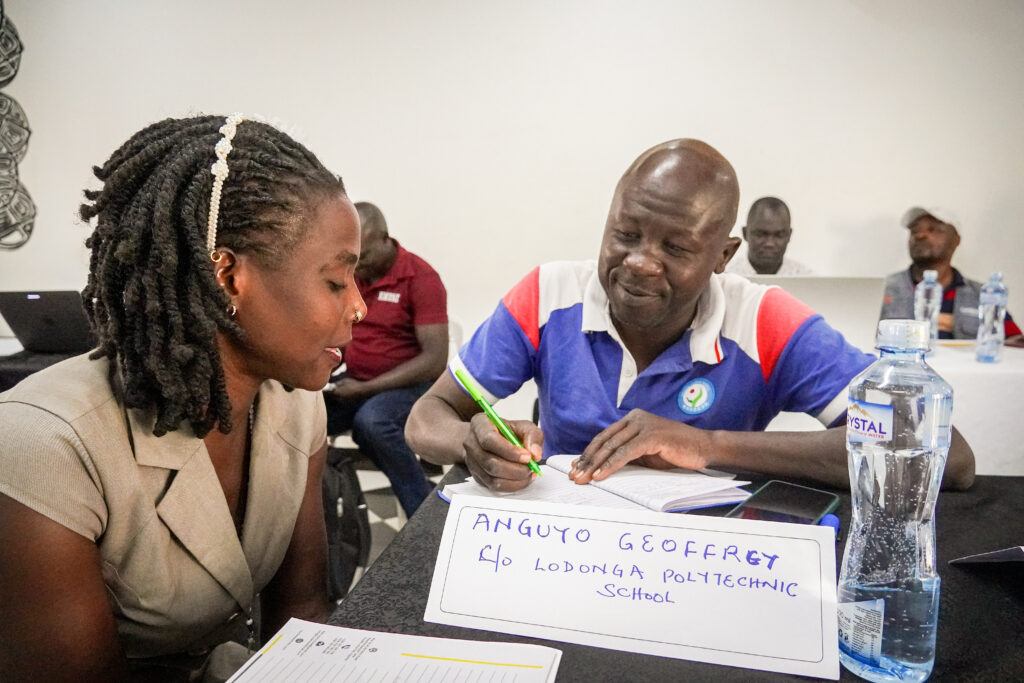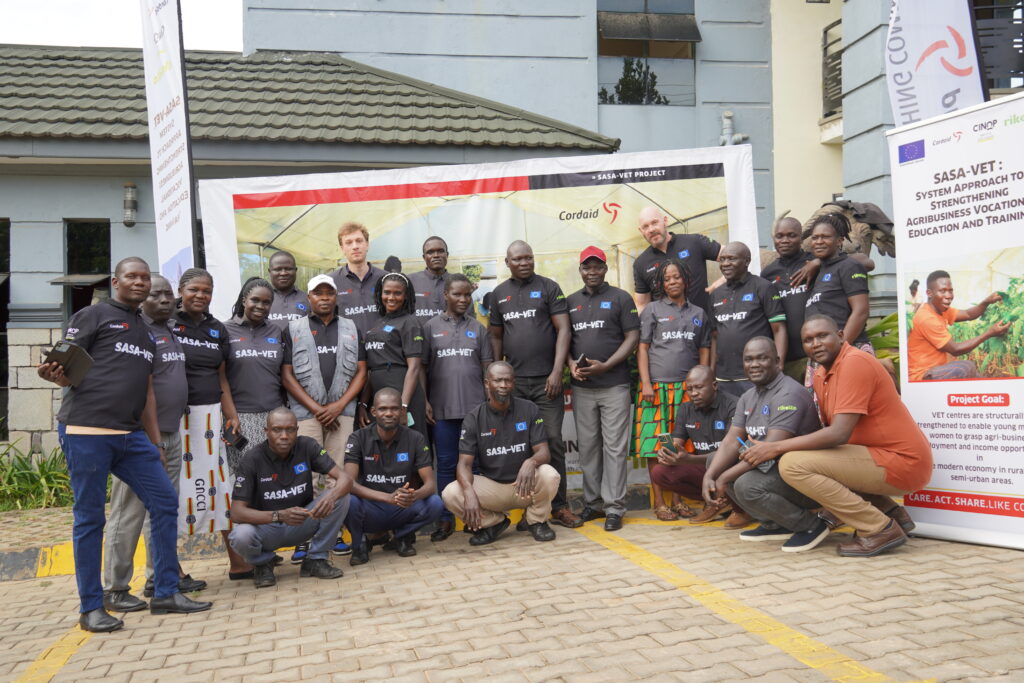In Uganda’s West Nile region, where employment opportunities are limited and economic instability is increasing, vocational education is more crucial than ever. Cordaid Uganda, in partnership with CINOP and Rikolto, is tackling this challenge through the Systemic Approach to Strengthening Agribusiness Vocational Education and Training (SASA-VET) project, funded by the European Union’s Erasmus+ programme.

SASA-VET aims to bridge the gap between education and employment by equipping young people with relevant and empowering skills. Focusing on the agricultural sector—a vital engine of opportunity in the region—the initiative is implemented in three key institutions: Pride Agricultural and Technical Institute, Koboko Technical Institute, and Lodonga Polytechnic School.
Essential Life Skills
‘Too often, vocational training focuses solely on technical know-how, leaving students ill-equipped to navigate professional life,’ says Lincoln Opio, Cordaid Uganda’s programme manager for Agri-Food System Strengthening. ‘SASA-VET embeds essential life skills—communication, critical thinking, problem-solving, creativity, and teamwork—into the curriculum to produce adaptable, confident graduates.’
This holistic approach is crucial in West Nile, which hosts over 700,000 refugees and grapples with limited access to jobs and higher education. Beyond technical training, young people need resilience, innovation, and adaptability to thrive in a rapidly changing and unpredictable world.
Train-the-Trainer
A cornerstone of the initiative is the Train-the-Trainer (ToT) model. In March 2025, 20 tutors from participating VET centres received intensive training in pedagogy, curriculum development, and lesson planning. These educators will now lead the development of localised curricula, mentor peers, and influence institutional policies, creating a ripple effect of expertise and sustainability.
SASA-VET incorporates practical training through demonstration farms and group-based agricultural projects to further ground learning in real-world applications. Climate-smart methods like bottle irrigation are being introduced to ensure sustainable and cost-effective practices.
Importantly, SASA-VET aligns vocational training with market demands. The initiative also fosters strong connections between VET centres and local businesses, ensuring that training leads to employment.

National Development Plan
As part of its comprehensive approach, the programme integrates financial literacy and community funding, reinforcing its alignment with Uganda’s National Development Plan and its vision for long-term economic stability.
SASA-VET is not merely a project—it signifies a shift in mindset. It challenges educators, policymakers, and development partners to reimagine vocational training as a dynamic, life-preparing process. The initiative establishes the foundation for a more self-reliant, innovative, and resilient Uganda by embedding life skills and forging stronger ties with the local economy.